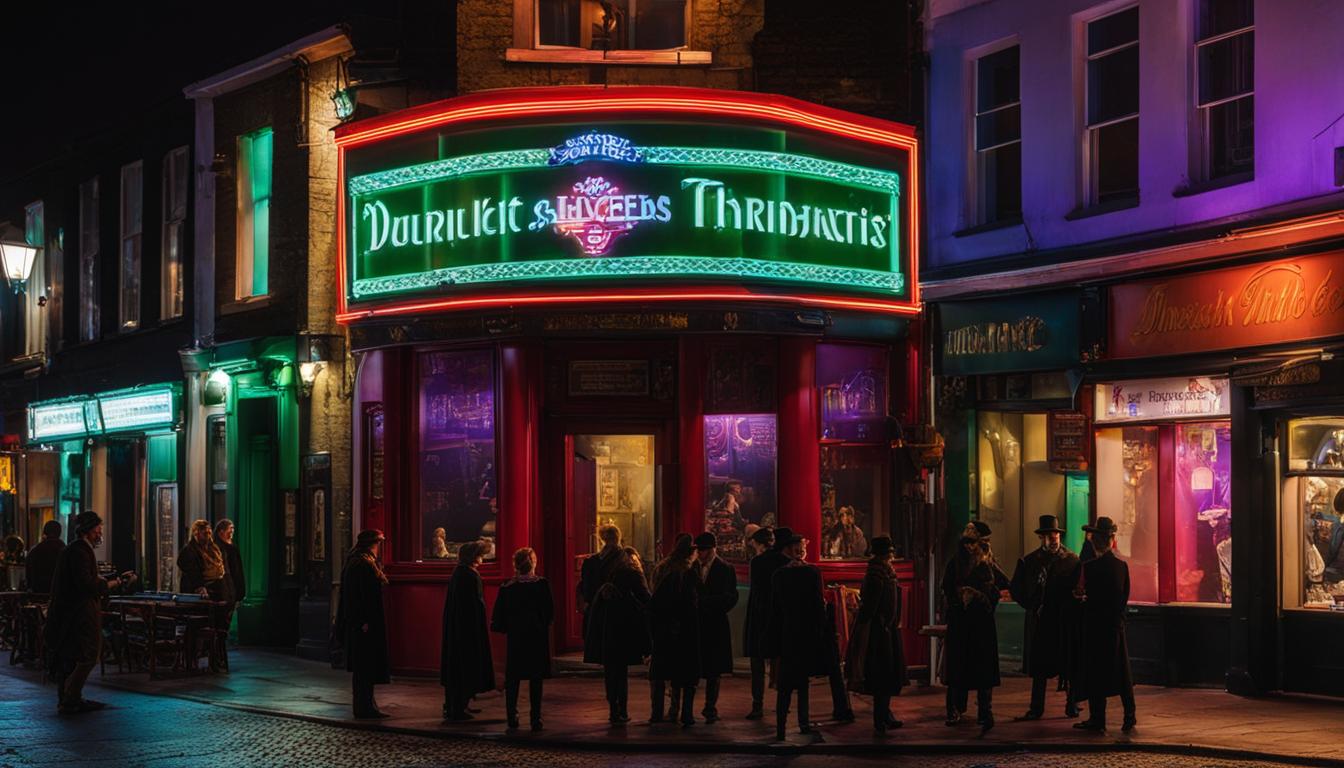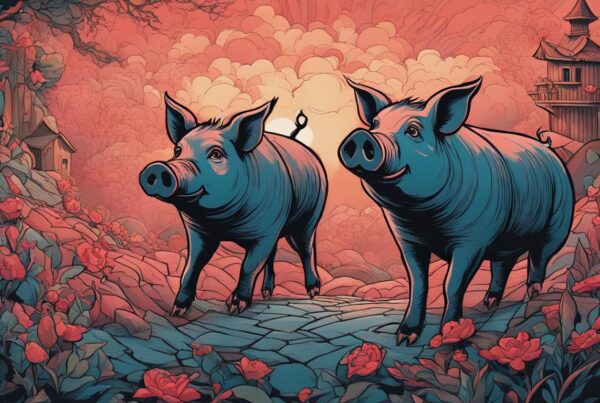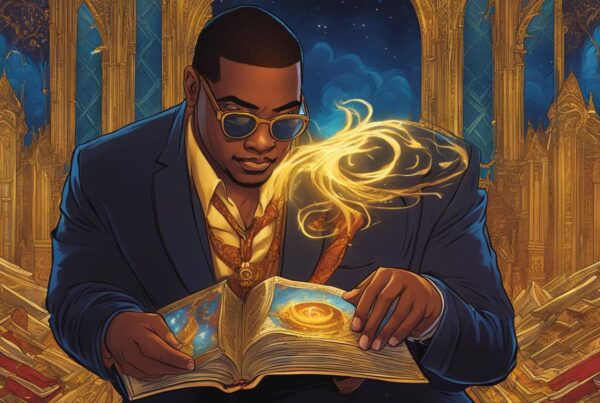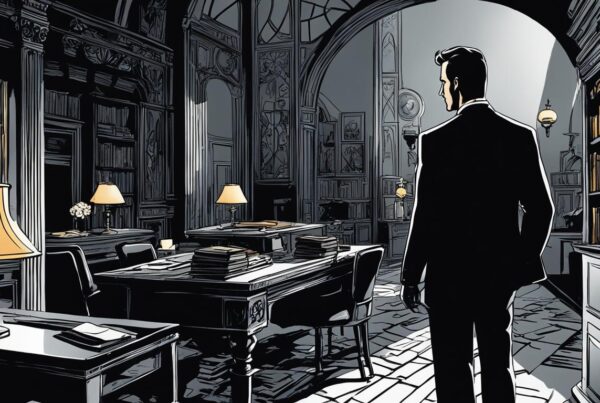“Druids, Dudes and Beauty Queens” by Dermot Bolger is a captivating book that delves into the evolution of Irish theatre. This thought-provoking work offers a comprehensive analysis of the changing face of Irish theatre, exploring the challenges and opportunities faced by the Irish stage in the context of societal change.
The book features diverse opinions on the work of renowned playwrights such as Martin McDonagh, Marina Carr, Billy Roche, Donal O’Kelly, and Brian Friel, among others. Through insightful contributions from prominent figures in the Irish theatre scene, “Druids, Dudes and Beauty Queens” examines representations of the Northern conflict, the state of the Irish language theatre, and international perceptions of Irish theatre.
Dermot Bolger, an acclaimed Irish novelist, playwright, and poet, skillfully edits the book, ensuring a rich and varied exploration of Irish theatre. Bolger challenges traditional concepts of Irishness, advocating for inclusivity in society. His co-founding of New Island Press in 1992 further establishes him as a pivotal figure in the Irish literary scene.
Key Takeaways:
- Druids, Dudes and Beauty Queens offers a comprehensive analysis of the evolution of Irish theatre.
- The book explores the work of prominent playwrights, including Martin McDonagh, Marina Carr, Billy Roche, Donal O’Kelly, and Brian Friel.
- It delves into representations of the Northern conflict and the state of the Irish language theatre.
- International perceptions of Irish theatre from countries like France, Hungary, and the Edinburgh Festival are examined.
- The contributions of esteemed Irish theatre professionals provide diverse insights into the art and industry.
About Dermot Bolger
Dermot Bolger is a prominent figure in the Irish literary scene. He is an acclaimed Irish novelist, playwright, and poet. Known for his exploration of the experiences of working-class characters who feel alienated from society, Bolger has carved a niche for himself with his thought-provoking and heartfelt works. Born in Finglas, a suburb of Dublin, his writing challenges traditional nationalist concepts of Irishness and highlights the importance of inclusivity. In 1992, Bolger co-founded New Island Press, a publishing house committed to promoting Irish literature and supporting emerging voices in the literary landscape.
Themes and Topics Explored
The book “Druids, Dudes and Beauty Queens” delves into a wide range of themes and topics that are central to the world of Irish theatre. One of the key focuses of the book is the changing face of Irish theatre and the ways in which it has evolved over time. The impact of societal changes on the development of Irish theatre is thoroughly examined, shedding light on the dynamic nature of this art form.
One aspect that the book explores is the work of various playwrights who have made significant contributions to Irish theatre. Playwrights such as Martin McDonagh, Marina Carr, Billy Roche, Donal O’Kelly, and Brian Friel are discussed, highlighting the diversity and depth of their work. These playwrights have explored a wide range of themes and styles, pushing the boundaries of Irish theatre and redefining the possibilities of storytelling on stage.
Representations of the Northern conflict are also a significant focus of the book. It analyzes how Irish theatre has portrayed and grappled with this complex and sensitive issue, providing insights into the ways in which art can reflect and engage with political realities. Additionally, the book delves into the state of Irish language theatre, examining its challenges, achievements, and the rich cultural heritage it represents.
The international perceptions of Irish theatre are also explored, highlighting the impact and resonance of Irish theatre beyond its borders. The book examines how Irish theatre has been received and interpreted in countries such as France, Hungary, and the Edinburgh Festival. This analysis offers valuable insights into how Irish theatre is perceived on a global scale, showcasing its cultural significance and the powerful stories it tells.
Irish theatre is a tapestry of diverse themes, captivating playwrights, and representations that bring the stories of Ireland to life. Exploring the changing face of Irish theatre, the work of renowned playwrights, and the representations of important topics, “Druids, Dudes and Beauty Queens” provides a comprehensive analysis of the multidimensional world of Irish theatre.
Table:
| Themes Explored | Description |
|---|---|
| Changing Face of Irish Theatre | Examines the evolution and development of Irish theatre in response to societal changes. |
| Playwrights | Explores the work and contributions of Martin McDonagh, Marina Carr, Billy Roche, Donal O’Kelly, and Brian Friel. |
| Representations of Northern Conflict | Analyzes how Irish theatre portrays and engages with the complexities of the Northern conflict. |
| Irish Language Theatre | Examines the state of Irish language theatre and its cultural significance. |
| International Perceptions | Explores how Irish theatre is received and interpreted in countries such as France, Hungary, and the Edinburgh Festival. |
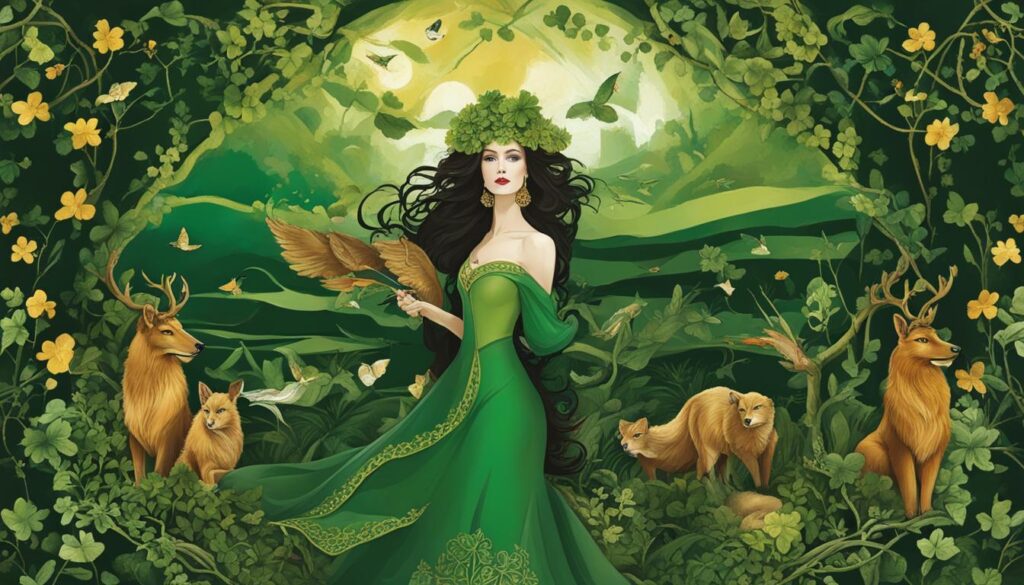
Contributions from Irish Theatre Professionals
“Druids, Dudes and Beauty Queens” showcases the invaluable contributions of esteemed Irish theatre professionals. This remarkable book serves as a platform for academics, critics, authors, and theatre professionals to share their profound insights and unique perspectives on the art and industry of Irish theatre. Edited by Dermot Bolger, the editor and a prominent figure in the Irish literary scene, the book presents a diverse range of voices, ensuring a comprehensive and engaging analysis of the dynamic and ever-evolving Irish theatre landscape.
The Evolution of Irish Theatre
The book “Druids, Dudes and Beauty Queens: The Changing Face of Irish Theatre” offers a compelling exploration of the evolution of Irish theatre. It delves into the realm of contemporary theatre in Ireland, providing invaluable insights into the vibrant and dynamic landscape of performances and productions that define the Irish stage today.
Within the pages of this book, the impact of the Celtic Tiger, a period of rapid economic growth in Ireland, is thoroughly examined in relation to its influence on the development of Irish theatre. This investigation raises thought-provoking questions about whether the Celtic Tiger has been a blessing or a disaster for the art form, and prompts compelling discussions about the future trajectory of Irish theatre.
The Significance of Irish Theatre
The world of Irish theatre holds a profound social significance that extends far beyond the confines of entertainment and box office success. It serves as a dynamic platform for engaging in a broader cultural conversation, exploring and reflecting upon the complex tapestry of Irish identity, social values, and aspirations.
Irish theatre delves deep into the heart of national and individual identities, presenting stories that resonate with audiences on a deeply personal level. Through the exploration of themes such as authenticity, representation, and societal change, Irish drama encourages audiences to question and challenge existing norms, fostering a richer understanding of the world we live in.
The power of Irish theatre lies in its ability to spark meaningful dialogue and provoke thought-provoking conversations about the issues that shape our society. As audiences engage with the stories unfolding on stage, they are invited to contemplate their own beliefs, values, and perspectives. It is through this process of introspection and dialogue that Irish theatre contributes to the cultural conversation, amplifying diverse voices and facilitating a deeper understanding of ourselves and others.
“Irish theatre provides a powerful medium for exploring the complexities of identity, both personal and national. Through compelling stories and vivid characters, it allows us to reflect on our own experiences and brings us closer to the heart and soul of Ireland.”
By shedding light on the multifaceted nature of Irish society and addressing social and political issues with honesty and artistic integrity, Irish theatre plays a pivotal role in shaping and influencing public discourse. It has the capacity to challenge established norms, provide social commentary, and champion inclusivity and diversity.
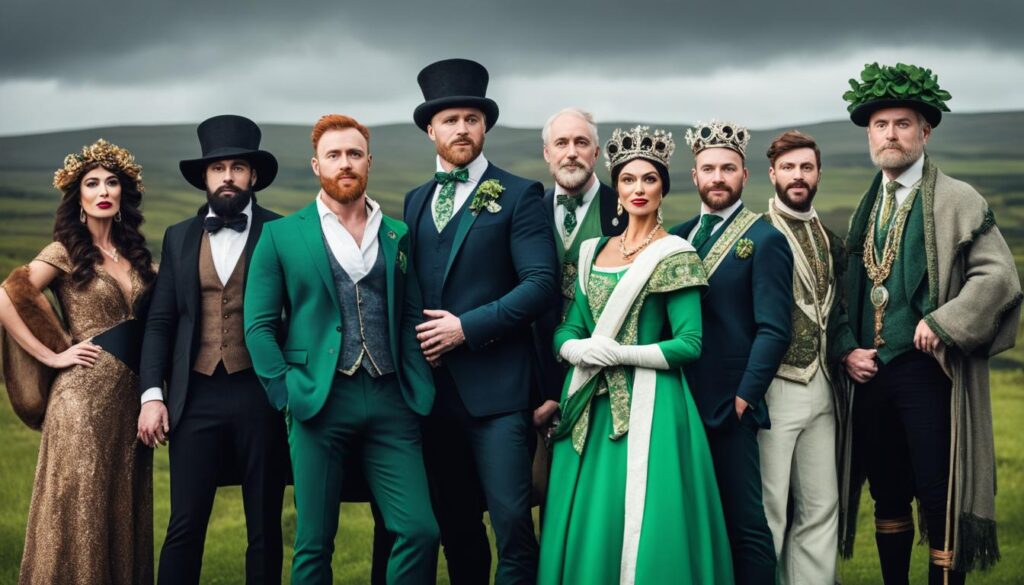
Whether exploring the tumultuous history of Ireland, delving into contemporary issues, or transporting audiences to realms of imagination, Irish theatre continuously evolves and adapts, mirroring the ever-changing society in which it exists. With its rich history and creative spirit, Irish theatre remains a vital and enduring part of the cultural fabric, captivating audiences and fostering a deeper understanding of the human experience.
Critical Analysis and Controversial Opinions
“Druids, Dudes and Beauty Queens” offers a captivating array of critical analysis and controversial opinions that provoke thought and stimulate discussion. The book presents a range of conflicting perspectives and lively debates surrounding the work of esteemed playwrights and the direction of Irish theatre as a whole.
“The key to progress is embracing contrasting viewpoints and engaging in rigorous debate.” – Emily Murphy, Theatre Scholar
Through a mix of academic insights, critical observations, and personal viewpoints, the book provides a nuanced understanding of the challenges and achievements within the realm of contemporary Irish theatre. It encourages readers to delve deeper, challenging preconceptions and fostering a deeper appreciation for the complex layers that shape the theatrical landscape.
The Power of Controversial Opinions
- Controversial opinions stimulate critical thinking and encourage alternative perspectives that challenge the status quo.
- These diverse opinions create a dynamic dialogue, paving the way for innovation and growth within Irish theatre.
- By embracing controversy, the book invites readers to question existing norms and explore new possibilities.
With its thought-provoking content, “Druids, Dudes and Beauty Queens” pushes beyond the comfort zone, initiating conversations that reflect the ever-evolving nature of Irish theatre.
The captivating nature of the book’s critical analysis and controversial opinions captivates readers, encouraging them to engage actively in the ongoing discourse around Irish theatre.
Diary Excerpts and Intimate Accounts
The captivating pages of “Druids, Dudes and Beauty Queens” offer readers a rare glimpse into the inner workings of the Irish theatre scene. This insightful book presents excerpts from the personal diary of the Abbey Theatre’s artistic director, providing a behind-the-scenes perspective on the decision-making process and the myriad challenges faced by theatre professionals. Through the intimate accounts shared within these pages, readers can gain a deeper understanding of the daily realities and intricacies of the theatre industry in Dublin and Cork.
Key Insights from Diary Excerpts
- The inner thoughts and reflections of the Abbey Theatre’s artistic director shed light on the creative process behind selecting plays, casting actors, and staging productions at one of Ireland’s most renowned theatres.
- Readers are privy to the challenges faced by theatre professionals, including financial constraints, artistic disagreements, and the constant quest for innovation and relevance.
- The diary entries offer valuable insights into the collaborative nature of the theatre world, showcasing the efforts of actors, directors, producers, and stage crew in bringing performances to life.
“The diary excerpts in ‘Druids, Dudes and Beauty Queens’ unveil the inner workings of the Abbey Theatre, revealing the commitment, passion, and determination required to create transformative theatrical experiences,” said an acclaimed theatre critic.
Intimate Accounts of Drama Companies in Dublin and Cork
In addition to the diary excerpts, this book also includes intimate accounts from drama companies in two of Ireland’s vibrant theater hubs: Dublin and Cork. Through these firsthand stories, readers gain insight into the day-to-day realities of theater life, capturing the magic, camaraderie, and challenges that come with pursuing a career in drama. From rehearsals and auditions to the thrill of opening night, these accounts bring to life the passion and dedication of the individuals who make Irish theatre flourish.
| Drama Companies | Location |
|---|---|
| Abbey Theatre | Dublin |
| Cork Arts Theatre | Cork |
| Smock Alley Theatre | Dublin |
| The Everyman Theatre | Cork |
Conclusion
“Druids, Dudes and Beauty Queens: The Changing Face of Irish Theatre” is a thought-provoking and insightful book edited by Dermot Bolger. Through the diverse voices and perspectives of the Irish theatre community, this book offers a comprehensive analysis of the contemporary Irish theatre scene. It delves into the evolution of Irish theatre, exploring the challenges and opportunities faced by playwrights and the wider industry.
From the examination of specific playwrights like Martin McDonagh, Marina Carr, Billy Roche, Donal O’Kelly, and Brian Friel to the exploration of topics such as representations of the Northern conflict and the state of Irish language theatre, the book presents a rich and varied discussion on the changing face of Irish theatre. It also sheds light on international perceptions of Irish theatre, offering insights from countries like France, Hungary, and the Edinburgh Festival.
“Druids, Dudes and Beauty Queens” underlines the social significance of Irish theatre, showcasing how it goes beyond mere entertainment and engages in a broader cultural conversation. The book challenges traditional notions of Irishness, advocating for a more inclusive society and providing a platform for critical analysis and controversial opinions. Through diary excerpts and intimate accounts, readers gain valuable behind-the-scenes glimpses of the theatre industry in Dublin, Cork, and the Abbey Theatre.
In summary, “Druids, Dudes and Beauty Queens: The Changing Face of Irish Theatre” by Dermot Bolger is an essential read for anyone interested in Irish theatre. It offers a book summary that captures the essence of the evolving Irish theatre landscape, making it a valuable resource for theatre professionals, academics, and theatre lovers alike.
